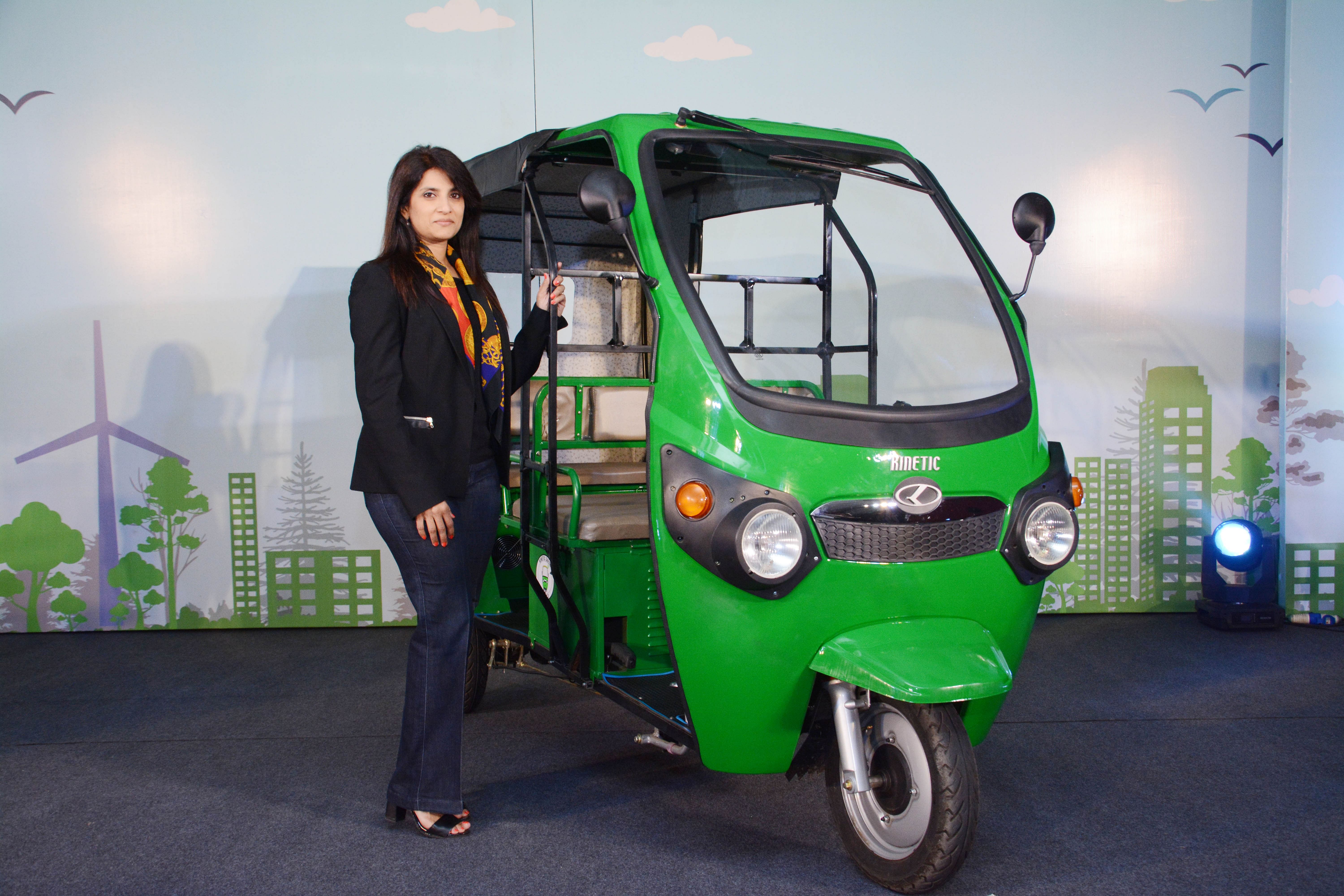Kinetic Green launches electric rickshaw with lithium ion battery
The Kinetic Safar with the Li-Ion battery is currently under homologation and will be launched on a pilot basis within a month.
Pune-based Kinetic Green Energy and Power Solutions has launched its first electric three-wheeler, the Kinetic Safar. It is the first e-rickshaw in the country to be equipped with a lithium ion battery.
Currently most electric three-wheelers in India use lead acid batteries, which have a shorter life, duration, long charging time of 10 hours, and excess weight. Lead acid batteries typically have to be replaced every year and weigh around 120kg for an e-rickshaw application.
Along with its energy partners, Kinetic Energy has developed and tested lithium ion batteries for application in its e-vehicles. The vehicle with this new battery is currently under homologation and will be launched on a pilot basis within a month. Kinetic Green will provide the entire kit including the battery, BMS (battery management system) and charger to its customers. While the lithium ion battery costs around Rs 55,000-60,000 more than a conventional lead acid battery, the additional cost can be offset by the much longer battery life, higher confidence of financiers, service back-up and fast charging facility. The company says it is keen to explore models such as battery rental, battery swapping and creation of charging points to further help penetration of this technology, along with its partners and the support of the government.

“Kinetic Green’s affordable Kinetic Safar e-three-wheeler is a sincere effort to provide a pollution-free green mode of safe transportation in the country. The Safar is well engineered with a strong chassis and all-steel body and has been approved by the Automotive Research Association of India (ARAI) to meet all government safety norms as per Central Motor Vehicle Rules (CMVR). With the introduction of lithium ion battery technology, we are bringing the latest in technology to our users and ensuring long battery life up to five years, lower maintenance and higher earning ability for the driver,” said Sulajja Firodia Motwani, founder and CEO of Kinetic Green Energy and Power Solutions.
Lithium ion vs lead acid batteries
- In a lithium-ion battery, high energy density leads to low weight which translates into more kilometres between charges. While a Li-Ion battery weighs 35kg, a 48 V-80 Ah lead acid battery weighs 120kg.
- While a Li -Ion unit can be charged in only 1.5 to 3 hours, lead acid battery charging time is 8-10 hours or more. Li-Ion cells have a life of 1,500 cycles (NMC) and 3,000 cycles (LeFePo4) – a life up to 5 years. In comparison, lead acid batteries have a typical life of 360 cycles.
- Li-Ion batteries have a low self-discharge which means if the vehicle is not used for some time, its charge status remains the same.
- They are also low maintenance. Li-Ion cells, unlike lead acid or nickel cadmium, do not require maintenance to ensure their performance.
RELATED ARTICLES
Cosmo First diversifies into paint protection film and ceramic coatings
The Aurangabad, Maharashtra-based packaging materials supplier is leveraging its competencies in plastic films and speci...
JSW MG Motor India confident of selling 1,000 M9 electric MPVs in first year
The 5.2-metre-long, seven-seater luxury electric MPV, which will be locally assembled at the Halol plant in Gujarat, wil...
Modern Automotives targets 25% CAGR in forged components by FY2031, diversifies into e-3Ws
The Tier-1 component supplier of forged components such as connecting rods, crankshafts, tie-rods, and fork bridges to l...






 By Autocar Professional Bureau
By Autocar Professional Bureau
 28 Apr 2017
28 Apr 2017
 160880 Views
160880 Views









